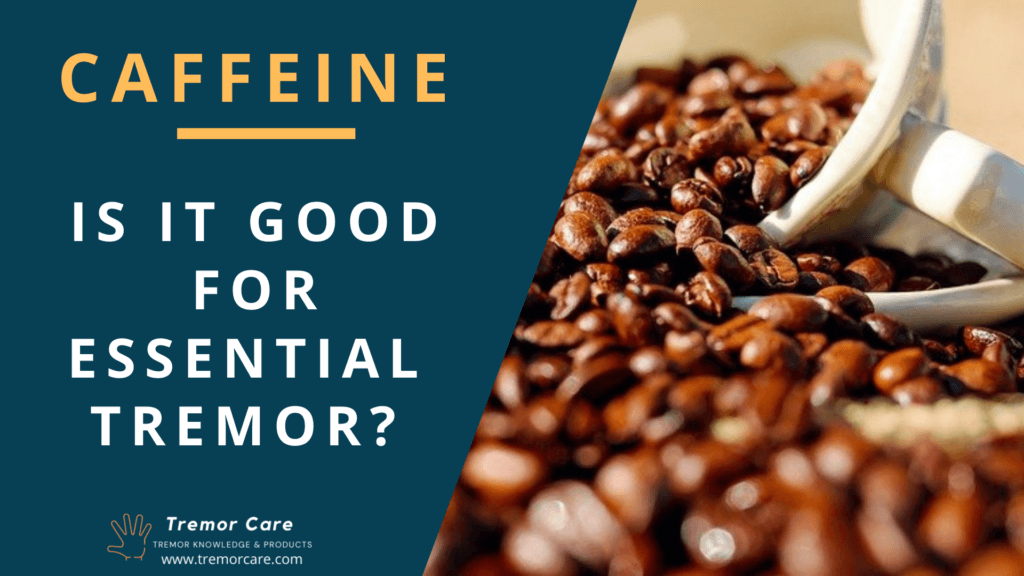Although best known as a brain booster, caffeine also has some beneficial effects. But whether its intake is also useful for those with essential tremor? What does the research say about this? Let’s find out here!

There is no doubt that caffeine is the world’s most commonly used psychoactive drug. It is widely used in the most popular beverages like coffee, tea, energy drinks, and soft drinks. It’s estimated that around 80% of the world’s population consumes these caffeinated products every day.
Most people consume it as a recreational drug; to make themselves happy and excited. Others use it to get some energy boost, and to stay focused, alert and awake. But research suggests that moderate daily intake of caffeine can also have some therapeutic effect. These include:
- Decreases the risk of dementia
- Protects from Parkinson’s disease
- Reduces the risk of Alzheimer’s disease
- Protects from developing type 2 diabetes
- Improves mood
- Decreases the risk of depression
- Reduces the risk of stroke
Caffeine and Essential Tremor – Is there a Link?
Since caffeine is increasingly linked to many medical conditions, there is a general perception that it could also be one of those environmental factors that may increase the risk of developing essential tremor (ET). Although the research in this regard is rather limited, the data collected so far indicates no relation of caffeine intake with ET.
For example, one study compared the relationship between caffeine intake and ET and found no strong correlation between the amount of caffeine intake and disease duration. The study involved 79 ET patients and 100 control subjects and it was published in the Journal of Neurological Sciences. The participants underwent a standardized questionnaire interview to evaluate the association of caffeine intake with the risk of ET. The researchers of the study observed no link between caffeine intake and the risk of ET. They concluded in the end that ‘‘caffeine consumption was not associated with risk of ET in our study population’’.
How About its Effects on the Severity of Tremor?
Researchers have also studied the effects of caffeine intake on the severity of tremor in patients. In the majority of cases, no such relation was found. Here, we have an example of two studies.
The first is a questionnaire-type study that compared the current daily intake of caffeine among participants and linked it with the severity of tremor. The study, which was published in the Journal of Movement Disorder, included a total of 130 ET patients and 175 controls subjects.
The study found that daily caffeine intake was not correlated with tremor severity or duration. It was found that ET patients consumed less caffeine than did controls and the study suggested that it could be due to a dietary modification in response to tremor.
The second study is a rather old one and it was published in the journal of Neurology. This was also a questionnaire-based study that collected data on the effect of a single oral dose of caffeine in tremor patients (included both ET and Parkinson’s tremor) and compared it with data from control non-tremor individuals. The participants were observed for the presence of tremor after 1, 2, and 3 hours of caffeine intake. The study found that only 2% of the control group observed caffeine made their hands shaky. 8% of ET and 6% of Parkinson’s patients noted that that coffee worsened their tremor. The study concluded that ‘‘caffeine only infrequently induces tremor in normal people, and it does not exacerbate pathologic tremor’’.
What About its Side Effects?
Caffeine is not associated with any adverse effects when consumed in moderate amounts. However, its high dosage can worsen the tremor. Also, it may disturb night-time sleep when consumed before going to bed.
Conclusion
While there is some research evidence indicating that caffeine has therapeutic effects against certain diseases, it is not clear whether it can also be useful in essential tremor. In fact, its intake in high doses may exacerbate the tremor. If you’re suffering from essential tremor and are willing to use it on a daily basis, we strongly recommend you to check it with your doctor first.
Very helpful advise I will practice the home exercises and will let you know how it help me.
thank you